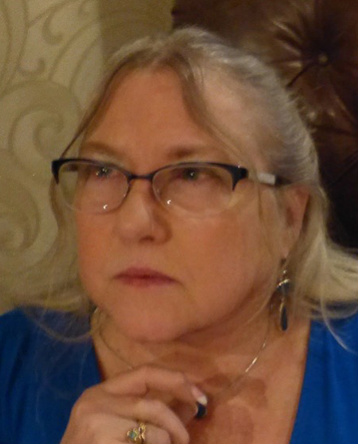Experience: Kathleen M. Carley is a professor of computer science in the Software and Societal Systems Department in the School of Computer Science at Carnegie Mellon University, IEEE Fellow, and director of the Center for Computational Analysis of Social and Organizational Systems (CASOS) and director of the center for Informed DEmocracy And Social‐cybersecurity (IDeaS), both at Carnegie Mellon University. She joined Carnegie Mellon in 1984 as assistant professor of sociology and information systems. In 1990 she became associate professor of sociology and organizations, in 1998 professor of sociology, organizations, and information technology, and in 2002, attained her current role as professor of omputation, organization, and society. She is also the CEO of Carley Technologies Inc., aka Netanomics.
Carley’s research combines cognitive science, sociology, organization science, and computer science to address complex social and organizational issues. Her most notable research contribution was the establishment of Dynamic Network Analysis (DNA) and the associated theory and methodology for examining large high‐dimensional time variant networks. Her research on DNA has resulted in tools for analyzing large‐scale dynamic networks and various multi‐agent simulation systems. She has led the development of tools for extracting sentiment, social and semantic networks, and cues from textual data (AutoMap & NetMapper), simulating epidemiological models (BioWar), and simulating changes in beliefs and practice given information campaigns (Construct). Her ORA system is one of the premier network analysis and visualization technologies, used worldwide, supporting reasoning about geo‐spatial and dynamic high‐dimensional network data. It includes special features for handling small and big data, social media data, and network dynamics. Illustrative projects include assessment of disinformation and social cyber‐security threats, IRS outreach, impact of NextGen on airline re‐rerouting, counter-terrorism modeling, counter‐narcotics modeling, health analytics, social media analytics of elections, and crises such as Benghazi, Darfur, the Arab Spring, COVID‐19.
Education: Carley received SB degrees in economics and in political acience from M.I.T., and a Ph.D. degree in sociology from Harvard University, and an HD from the University of Zurich.
Publications: Carley has more than 400 scientific publications, including: “Characterization and Comparison of Russian and Chinese Disinformation Campaigns” (2020), “Different Faces of False: The spread and curtailment of false information in the Black Panther Twitter discussion” (2019), “Social Cybersecurity: An Emerging National Security Requirement” (2019), “Online extremism and the communities that sustain it: Detecting the ISIS supporting community on Twitter” (2017), “Transition Networks in a Cohort of Patients with Congestive Heart Failure” (2015).
Honors: Carley is an IEEE Fellow. She received an honorary doctorate from the University of Zurich in 2019. She is the recipient of the USGA Academic Award at GEOINT 2018 for her work on geo‐spatially enabled dynamic network analytics, the Allen Newell award for research excellence, the Lifetime Achievement Award from the Sociology and Computers Section of the ASA (2001), and the Simmel Award for advances in social networks from INSNA (2011). She has served as president of the North American Association for Computational and Organizational Simulation (2003‐2004) and the Mathematical Sociology Section of the American Sociological Association (1999‐2000). She has served as a task force member of the Defense Science Board and the Geographic Information Science Panel of the Strategic Command. She has served on multiple National Research Council panels including modeling for the military, big data, geo‐spatial analytics, and the decadel survey for the social sciences and was a member of the DHS‐HSSTAC.

